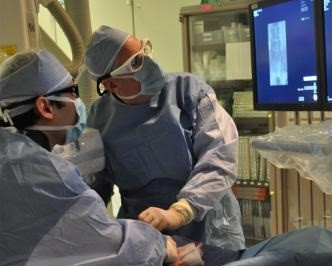Latinos are the fastest growing population in the U.S., but despite their population size, population size, they are an underserved group, experiencing significant disparities in health care including higher rates of particular cancers, lower cancer screening rates and cancer diagnoses at more advanced stages than non-Latinos. The growth rate in U.S. Latino cancer cases is projected to hit an astounding 142 percent by 2030, which is why education and screening are key. One thing Latinos have in common is that they love smartphones and more and more health organizations are using technology to help educate Latinos at risk.
Paula Cupertino, Ph.D., director of the University of Kansas Medical Center’s Juntos Center for Advancing Latino Health, and her bilingual team, which includes researchers from The University of Kansas Cancer Center and Children’s Mercy, are working to reduce this looming health crisis through cancer prevention, and they are doing it in a unique way. Cupertino’s team is connecting Latinos with tobacco cessation treatment (both medication and behavioral support) via text messaging.

Why text messaging? Latinos are the fastest users and adopters of cell phones and respond more to the text message market than any other group. Since 2009, Latinos have closed the gap between whites for cell phone ownership – about 86 percent of Latinos own cellphones compared with 84 percent of whites. Eighty-seven percent of Latinos use their phones for texting, whereas only 79 percent of whites text.
“Given Latinos preferences towards smartphones, mobile health care is key. Latinos are a critically underserved group that falls outside of the traditional healthcare system. Access to standard face-to-face care can be an issue, but anyone with a cell phone can text and simply access cessation resources,” Cupertino said.






